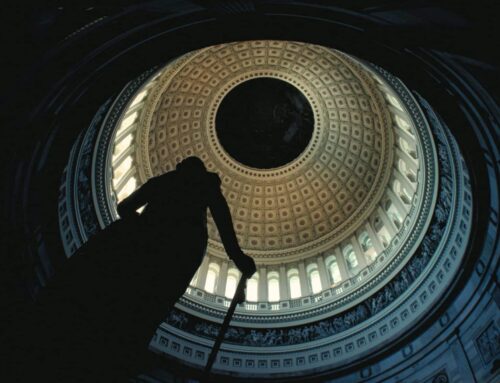Lawmakers have recently gone into spending overdrive. Eyeing the upcoming election, they have completed or are putting final touches on nearly a trillion dollars worth of legislation at warp speed, after basically twiddling their thumbs for five months. We’re all for legislative speed, but each of these three massive bills has fundamental and costly flaws.
With his new found love affair with the presidential veto, President Bush has laid on the tracks to slow the spending train a few times this year. But with record low approval ratings and three stunning losses in special Congressional elections, Republicans are starting to drink the election-year spending Kool-Aid and are content to just run over him and spending restraint.
Last week, Congress overrode the president’s veto, with help from scores of Republicans, on the $300 billion Farm Bill that enshrines and expands the worst abuses of an archaic farm subsidy system. One padded with pork for such items as the $229 million tax break for racehorse owners.
Congress ignored efforts by the administration and others to reform the system which subsidizes farmers making up to $2.5 million despite record crop and commodity prices.
The Senate continued this trend by passing an emergency spending package with a total price tag of well over $260 billion — billions more than the president’s request of $184 billion. The president has promised a veto, but with billions of non-emergency spending that essentially acts as legislative grease, this bill will likely squeeze through to final approval.
The emergency legislation contains money for almost everything and every state including “$5 million would be dedicated to the Hepatitis C outbreak in Nevada” and “an additional $450 million that would supply the Bureau of Land Management and the United States Forest Service with funding to prepare for the dangerous Nevada summer fire season,” as Senate Majority Leader Harry Reid (D-NV) touted in a press release. Perhaps worthy expenditures, but which should be approved through the regular budget process. The House is expected to take up this spending bill next week.
The final budget behemoth was the American Housing Rescue and Foreclosure Prevention Act, that provided $300 billion in federal loan guarantees to families at risk of foreclosure. Estimates put the final cost to taxpayers at a small fraction of that total, but we’ve heard that story before. Rather than looking at the root causes of what put us in this foreclosure crisis in the first place, the legislation as written puts the federal government into the business of bailing banks, lenders, and individuals out of bad investments at the expense of all taxpayers.
Underlying each of these multi-billion dollar pieces of legislation are important problems that need addressing. But all too often, the sausage-making in Congress gets too expensive or becomes downright irresponsible.
Right now the U.S. economy is the weakest it’s been in some time. Congress needs to make some smart, targeted, and appropriate investments, rather than going on a huge federal spending spree. House and Senate leadership could learn something from their constituents, who have been forced to make do with much less.
If Congress doesn’t close the federal spending spigot soon, it could come back to haunt them. Our country already has a $9 trillion debt hole to climb out of. Digging any deeper is just plain foolhardy.











Get Social